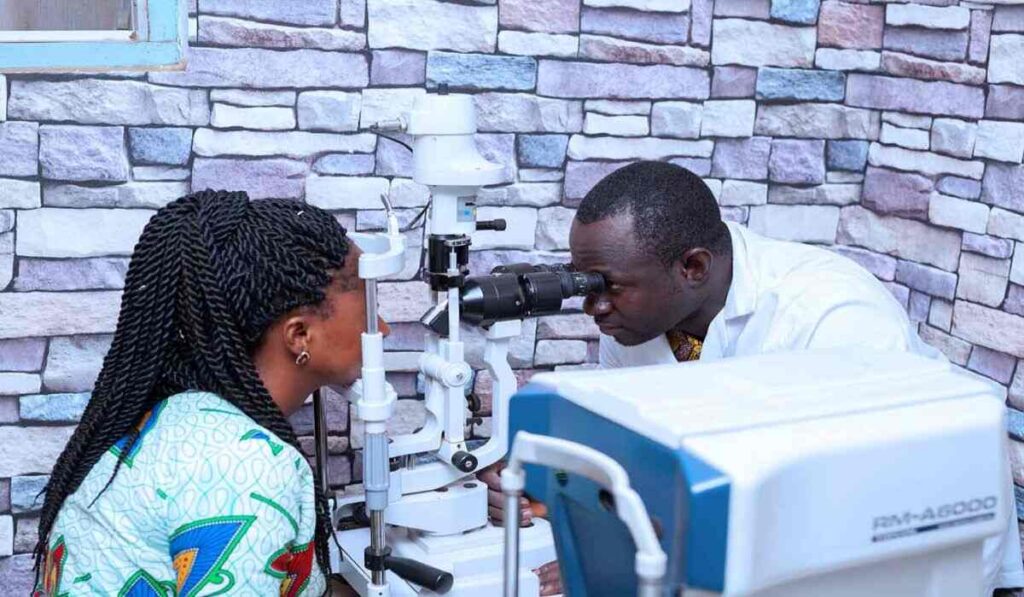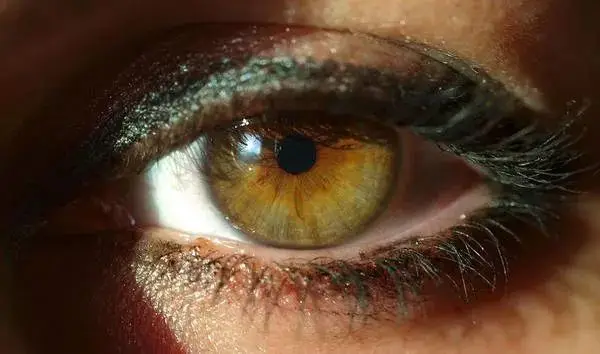If untreated, glaucoma is a major eye condition that can cause blindness. This guide explains the signs and symptoms of glaucoma and when to see a doctor.
A common eye condition that is known to affect millions of individuals worldwide is glaucoma. The optic nerve is harmed over time by this progressive condition, which results in vision loss and, in extreme cases, blindness.
Unfortunately, many glaucoma sufferers do not become conscious of their illness until it has advanced to a serious stage. Therefore, it is indeed essential to be aware of glaucoma symptoms in order to seek treatment as soon as possible.
The symptoms of glaucoma, the different kinds of glaucoma, and the appropriate time to seek medical attention are all covered in this article.
Need an experienced eye doctor? Talk to Dr. Owusu now: +233235535960
Table of Contents
- Types of Glaucoma
- Symptoms of Glaucoma
- When to Seek Medical Help
- FAQs About Symptoms of Glaucoma
- Conclusion
Types of Glaucoma
Angle-closure glaucoma and open-angle glaucoma are the two main varieties.
The most prevalent form of glaucoma is open-angle glaucoma. Whenever the drainage angle inside the eye is open but not functioning properly, pressure builds up in the eye, gradually harming the optic nerve.
Angle-closure glaucoma: When the iris is forced forward, it closes the drainage angle in the eye, which results in an abrupt rise in eye pressure. This form of glaucoma is a life-threatening emergency that needs to be treated right away.
Symptoms of Glaucoma
Depending on the kind and stage of the disease, glaucoma symptoms change. However, a few widespread signs include:
- Gradual loss of vision: Glaucoma typically first affects peripheral vision before moving on to affect central vision.
- When you have tunnel vision, you are able to see only a tiny portion of the space in front of you.
- You might have blurry vision or notice haloes around certain lights.
- You may experience eye pain or discomfort, particularly while watching TV or reading.
- You might very well experience headaches, especially in the area around your eyes.
- In addition to severe eye pain, angle-closure glaucoma patients with severe cases may also experience nausea and vomiting.
When to Seek Medical Help

If you encounter any of the symptoms of glaucoma, it is critical to seek medical attention right away for the right eye exam to be carried out to improve your eye health:
- Sudden onset of severe eye pain: Angle-closure glaucoma is a medical emergency that needs to be treated right away if you’re experiencing sudden and severe eye pain.
- Vomiting and nausea: Severe eye pain accompanied by either of these symptoms indicates acute angle-closure glaucoma and needs to be treated immediately.
- Blurred vision or halos around lights: These symptoms of angle-closure glaucoma could indicate a sudden rise in eye pressure if you experience sudden blurry vision or halos around lights.
- Another sign of acute angle-closure glaucoma is seeing rainbow-colored circles around lights; if this occurs, you should get medical attention right away.
- Sudden loss of vision: If you suddenly lose vision in one or both of your eyes, you should seek medical attention right away because it may be an indication of advanced glaucoma or a glaucoma-related complication.
- An acute glaucoma attack or some other serious eye condition may be indicated by redness in the eye, particularly if it is backed by pain or changes in vision.
- Flashing lights: Retinal detachment, which can happen as a complication of glaucoma, can cause flashes of light or sudden changes in vision, so it’s important to seek medical attention right away.
- Eye pain: It’s important to see a doctor if you experience persistent headaches around your eyes, particularly if they are accompanied by vision changes. These symptoms could indicate increased eye pressure or other eye issues.
What glaucoma symptom might you have? Seek expert help for better eye care.
Also read: The Best Eye Clinic in Accra: All You Need to Know!
FAQs About Symptoms of Glaucoma
Below are some relevant FAQs about glaucoma symptoms for your interest.
Who is at risk of developing glaucoma?
Anyone can develop glaucoma, but those over 60, people who have a family history of the disease, and those with particular medical conditions, like diabetes, are more likely to do so.
How is glaucoma diagnosed?
A thorough eye examination that includes measuring eye pressure, inspecting the optic nerve, and examining the visual fields can identify glaucoma.
Can glaucoma be treated?
Yes, glaucoma can be treated, but early detection is crucial. Treatment options include eye drops, laser therapy, and surgery. This is why knowing the symptoms of glaucoma is always important.
Conclusion
If untreated, glaucoma is a serious eye condition that can cause blindness and vision loss. Knowing the symptoms of glaucoma and seeking immediate medical attention can help you avoid further vision loss. Do not wait too long to seek medical attention or a regular eye exam if you experience any glaucoma symptoms. Keep in mind that prevention begins with early detection and treatment. We are here to give you the best eye care for any eye disease!





